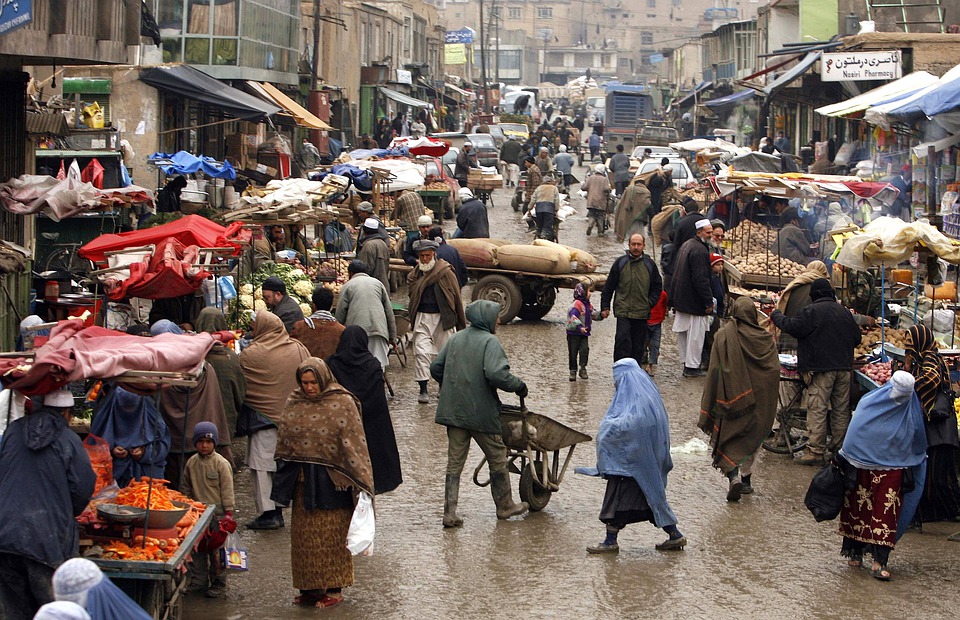Afghanistan’s acting Commerce and Industry Minister said the insurgent group has signed a provisional deal with Russia to supply gas, diesel, and wheat. This comes as the ministry is looking to diversify its trading partners.
The acting Afghan Commerce and Industry minister Haji Nooruddin Azizi told Reuters Tuesday that the Taliban signed a provisional deal with Russia in an effort to diversify its trading partners.
In the deal, Russia would supply Afghanistan with gasoline, gas, diesel, and wheat. Moscow also offered the Taliban government a discount on the average global commodity prices.
Azizi said that under the deal, Russia would supply Afghanistan with around one million tons of gasoline, one million tons of diesel, 500,000 tons of liquefied petroleum gas, and two million tons of wheat per year.
This marks the first major economic deal the insurgent group has made since taking control of Afghanistan last year. The deal could also help ease Afghanistan’s “isolation” from the global banking system due to the sanctions imposed on some of the insurgent group’s members and frozen overseas assets.
The West said that for the insurgent group to be recognized internationally, it must change its policies on women’s rights and prove that it has severed ties with other militant groups. While
Russia does not also recognize the Taliban’s government, Moscow hosted Taliban leaders during the time leading up to the fall of the Western-backed government in Kabul last year, and the Russian embassy is one of the very few that are still running in Afghanistan.
Meanwhile, a senior member of the Taliban has called on its leaders to reopen schools for girls, saying that there is no valid reason in Islam for the ban. The Taliban deputy foreign affairs minister Sher Mohammad Abbas Stanikzai made the comments during a Taliban gathering in the capital Kabul.
“It is very important that education must be provided to all, without any discrimination,” said Stanikzai. “Women must get an education. There is no Islamic prohibition for girls’ education.”
“Let’s not provide opportunities for others to create a gap between the government and people,” Stanikzai added. “If there are technical issues, that needs to be resolved and schools for girls must be reopened.”



 India–U.S. Interim Trade Pact Cuts Auto Tariffs but Leaves Tesla Out
India–U.S. Interim Trade Pact Cuts Auto Tariffs but Leaves Tesla Out  Japan Election 2026: Sanae Takaichi Poised for Landslide Win Despite Record Snowfall
Japan Election 2026: Sanae Takaichi Poised for Landslide Win Despite Record Snowfall  Israel Approves West Bank Measures Expanding Settler Land Access
Israel Approves West Bank Measures Expanding Settler Land Access  Trump Signs Executive Order Threatening 25% Tariffs on Countries Trading With Iran
Trump Signs Executive Order Threatening 25% Tariffs on Countries Trading With Iran  New York Legalizes Medical Aid in Dying for Terminally Ill Patients
New York Legalizes Medical Aid in Dying for Terminally Ill Patients  Nicaragua Ends Visa-Free Entry for Cubans, Disrupting Key Migration Route to the U.S.
Nicaragua Ends Visa-Free Entry for Cubans, Disrupting Key Migration Route to the U.S.  Ohio Man Indicted for Alleged Threat Against Vice President JD Vance, Faces Additional Federal Charges
Ohio Man Indicted for Alleged Threat Against Vice President JD Vance, Faces Additional Federal Charges  China Overturns Death Sentence of Canadian Robert Schellenberg, Signaling Thaw in Canada-China Relations
China Overturns Death Sentence of Canadian Robert Schellenberg, Signaling Thaw in Canada-China Relations  Trump’s Inflation Claims Clash With Voters’ Cost-of-Living Reality
Trump’s Inflation Claims Clash With Voters’ Cost-of-Living Reality  Trump Administration Appeals Court Order to Release Hudson Tunnel Project Funding
Trump Administration Appeals Court Order to Release Hudson Tunnel Project Funding  Bangladesh Election 2026: A Turning Point After Years of Political Suppression
Bangladesh Election 2026: A Turning Point After Years of Political Suppression  Taiwan Says Moving 40% of Semiconductor Production to the U.S. Is Impossible
Taiwan Says Moving 40% of Semiconductor Production to the U.S. Is Impossible  Jack Lang Resigns as Head of Arab World Institute Amid Epstein Controversy
Jack Lang Resigns as Head of Arab World Institute Amid Epstein Controversy  Trump Lifts 25% Tariff on Indian Goods in Strategic U.S.–India Trade and Energy Deal
Trump Lifts 25% Tariff on Indian Goods in Strategic U.S.–India Trade and Energy Deal  Netanyahu to Meet Trump in Washington as Iran Nuclear Talks Intensify
Netanyahu to Meet Trump in Washington as Iran Nuclear Talks Intensify  Anutin’s Bhumjaithai Party Wins Thai Election, Signals Shift Toward Political Stability
Anutin’s Bhumjaithai Party Wins Thai Election, Signals Shift Toward Political Stability  Japan’s Prime Minister Sanae Takaichi Secures Historic Election Win, Shaking Markets and Regional Politics
Japan’s Prime Minister Sanae Takaichi Secures Historic Election Win, Shaking Markets and Regional Politics 































